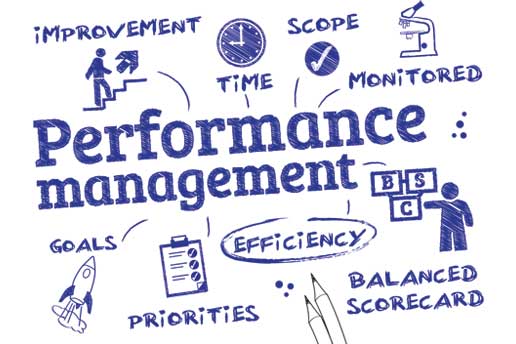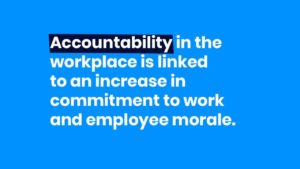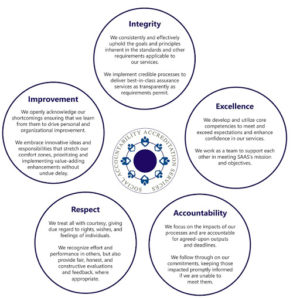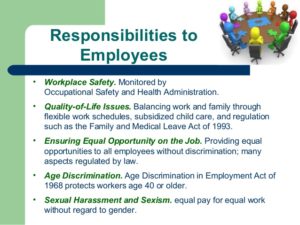
How to encourage employees to take responsibility and perform with excellence?

How to encourage employees to take responsibility and perform with excellence? Responsibility comes only when a task is given. A task given to an employee is on trust and accountability.

How to encourage employees to take responsibility and perform with excellence?
The world of work has been changed drastically within the last 20 years. In olden days, people took orders. Workers were expected to park their brains, shut their mouths and work their daily hours.
But somewhere along the way, some employers and organisations got smart. They began to realise that they could do more than buy their workers’ time. They could engage their teams’ heads and hearts as well.
In the new work world, it is all about taking responsibility. Every employee is expected to take responsibility to use all their talents and perform with excellence.
So what all things can you do to encourage your team to take responsibility and perform with excellence? Here are the seven things that work.

How to encourage employees to take responsibility?

- Help people get a vision of excellence.
Lots of people do not even know what “excellence” means. After all, they are doing their job and think that is good enough. They are competent but not excellent. Competence is the enemy of the great. So show the employees your vision of excellence that goes beyond competence, or create such a vision together.
- Expect excellence.
It sounds simple enough. But many employers and leaders do just the opposite. When they oversee the detail of every function, they are saying, in effect, they don’t expect excellence from their people. They expect failure.
Just be careful. It’s very difficult to disguise your expectations. Never expect others to shrug responsibility and do just enough to get by. Once they sense that, they will act accordingly. Expect and project. Expect excellence from your people and learn to project your expectation. And then…
- Lead by example.
When you walk your talk, people will listen to you. For instance, if you take responsibility for excellence, there is a greater chance for people around you also take responsibility and practice excellence.
Employees won’t take responsibility for excellence until they see you demanding excellence from themselves and others. Then only will they see that excellence is more than a hyped-up, flavour-of-the-month buzz word or training class? Rather, excellence is something that leaders, mature people, effective entrepreneurs, and managers take seriously.
Walk your talk. Never ever say something like “quality is king around here” and later ship out a few defective items when you are crunched for time.
- Get a commitment to excellence.
It’s unbelievably powerful. We would rather have one dedicated person working WITH us than three simply working FOR us.
When you want employees to take responsibility for excellence, get a commitment from the other person that he CAN do it and WILL do it. Get the other person to make a strong decision. It all begins with making a plan and saying, ‘This is what I am going to do: I am going to make it happen, no matter what happens!'”
To get that kind of dedication, ask the percentage question: To what degree you are committed to excellence on this task? And what will it take you to get 100% on board? After all, there is a time when you should move from deliberation to firm decision and from consideration to commitment.
- Reward responsibility.
When employees take responsibility for excellence, they typically do it for a reason. Maybe the work makes them feel good. It helps them master a skill, or move ahead in their career. But there is always a reason.
One of the major reasons people take responsibility is they want to receive praise. So give it to them. Praise employees who perform excellently. You will get amazed at the difference it can make in someone’s life or career.
Make sure you are doing something that rewards others for taking responsibility. And if they make some missteps along the way, all you have to do is…
- Use responsibility-encouraging words.
Correction does much, but encouragement does more. When employees take on more and more responsibility, they are bound to make some mistakes, and some correction is needed.
To be specific, don’t talk to an employee about his “weaknesses.” That sounds too much. It is like a set of permanent character flaws. A focus on “weaknesses” will turn an employee into a pessimist. Because he will think, “That is just the way I am. There is nothing I can do about it.”
Instead, when you are correcting less-than-excellent performance, talk about the employees’ “improvement opportunities.” That way, you are describing a process they will take responsibility for fixing. And that puts them back on the path to excellence.
Use words that tell the person he can do some things to improve. It is within his power.
- Analyse the process and payoff of admitting responsibility.
Excellence does not randomly strike like lightning. It is the outcome of certain acts of responsibility taking. And the process can be replicated if it is understood.
So it isn’t enough to acknowledge the employees’ excellence. The ideal way to keep it going is to help him realise the reason it came about in the first place. HOW did things turn out right, and HOW can he replicate that?
For example, if a person had an unusually good month in sales, recognize it and ask her why. Did he use a different strategy to prospecting or in closing the sale? Ifsoever he makes more sales calls or approaches a different type of clientele? Did he create a new presentation?
By asking such questions, you can help the person learn how the process of responsibility taking led to significant payoffs.
In gone days people used to say “that is not my job” and get away with it. In today’s work world, the only ones who will survive are those who take responsibility for excellence. With these seven useful strategies, you can get people to do exactly that.




